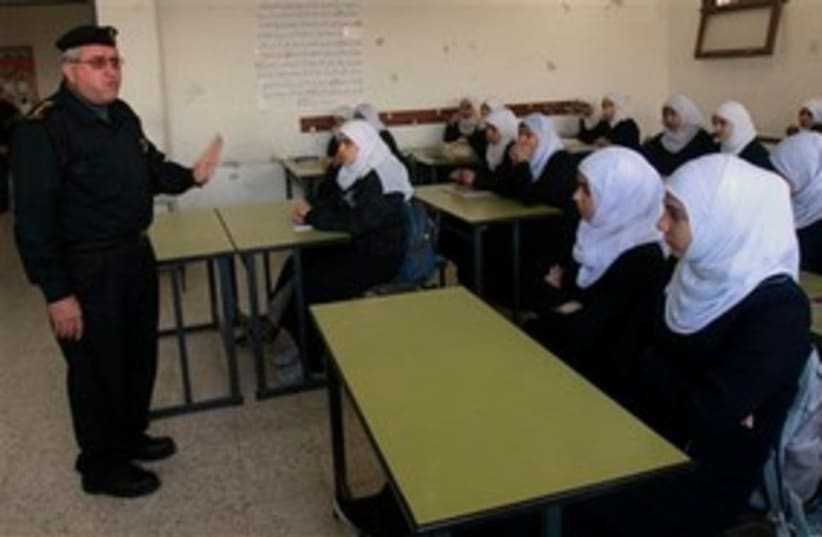RELATED:PA has been ‘renaming’ Jewish sites in textbooks'Anti-Semitic material being taught in UK Islamic schools'The researchers posit that their findings in Egypt "lower the chances for the emergence of a liberal democratic government.""A comparative report shows that the Egyptian people have not been taught the importance of democracy and accepting others," the report explains. "While school textbooks in Egypt urge tolerance towards Copts and call for religious moderation and peace, they deny the existence of the State of Israel and contain anti-Jewish material...The Egyptian curriculum emphasizes self-sacrifice for the sake of the homeland and war narratives, rather than peace."In contrast, Tunisian textbooks "preach the importance of negotiating, and of peace and respect for others. A ninth grade Tunisian textbook states that 'tolerance is a fundamental principle in the Koran,'" Dr. Eldad Pardo, and IMPACT-SE researcher, explained. "'So how is it that some people have used Allah's book as an instrument of extremism and narrow-mindedness' the students are asked."Tunisian textbooks also show Israel on their maps and mention the State of Israel, unlike those in the PA, Iran, Egypt and other Middle Eastern countries.The Palestinian Authority came far behind Israel and Tunisia in the rankings. Egypt, Saudi Arabia and Syria were towards the bottom of the scale, with Iran ranking lowest.The IMPACT-SE report used UNESCO principles to analyze textbooks from countries throughout the Middle East.
'Intolerant textbooks may prevent democracy in Egypt'
Study: Israel and Tunisia rank highest on Mideast tolerance index, while Egyptian curricula deny Israel's existence, emphasize war narratives.

RELATED:PA has been ‘renaming’ Jewish sites in textbooks'Anti-Semitic material being taught in UK Islamic schools'The researchers posit that their findings in Egypt "lower the chances for the emergence of a liberal democratic government.""A comparative report shows that the Egyptian people have not been taught the importance of democracy and accepting others," the report explains. "While school textbooks in Egypt urge tolerance towards Copts and call for religious moderation and peace, they deny the existence of the State of Israel and contain anti-Jewish material...The Egyptian curriculum emphasizes self-sacrifice for the sake of the homeland and war narratives, rather than peace."In contrast, Tunisian textbooks "preach the importance of negotiating, and of peace and respect for others. A ninth grade Tunisian textbook states that 'tolerance is a fundamental principle in the Koran,'" Dr. Eldad Pardo, and IMPACT-SE researcher, explained. "'So how is it that some people have used Allah's book as an instrument of extremism and narrow-mindedness' the students are asked."Tunisian textbooks also show Israel on their maps and mention the State of Israel, unlike those in the PA, Iran, Egypt and other Middle Eastern countries.The Palestinian Authority came far behind Israel and Tunisia in the rankings. Egypt, Saudi Arabia and Syria were towards the bottom of the scale, with Iran ranking lowest.The IMPACT-SE report used UNESCO principles to analyze textbooks from countries throughout the Middle East.